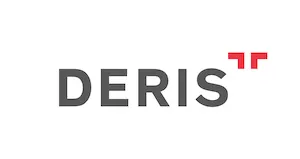MAX vs. MAXDEN CASE SUMMARY
| Jurisdiction: | Turkey |
| Subject Heading: | I.D.1. Similarity of Marks |
| Case Name and Citation: | UNILEVER N.V. vs YENI MAGAZACILIK A.S. & T.P.I., Case No. 2010/212; Decision No.2011/145 (Ankara 2nd Court of Intellectual and Industrial Rights, June 23, 2011) |
| Plaintiff: | UNILEVER N.V. |
| Defendant: | YENI MAGAZACILIK A.S. & the T.P.I. |
| Marks Associated with Goods/Services: | Plaintiff's MAX trademarks especially registered in classes 29 and 30 and defendant's trademarks “MAXDEN” no.2008 61364 registered in classes 29,30 and 32 |
| Nature of Case: | Court action for cancellation of the TPI’s decision1 of partially rejection of the application MAXDEN and for total cancellation of the trademark MAXDEN on the basis of similarity/likelihood of confusion and notoriety of plaintiff's trademark MAX according to the Articles 8/1 (b)2 and 8/4.3 |
| Prior Decisions: | The opposition filed by the plaintiff against the subject trademark MAXDEN was partially accepted by the TPI in respect of “Ice cream, edible ice” only. The objection filed by the plaintiff against the application for its cancellation in respect of remaining goods was rejected by the Higher Council of the TPI. Therefore the plaintiff has instituted a court action against the TPI (as decision maker) and the applicant (as trademark holder) for cancellation of the TPI’s decision and for totally cancellation of the subject trademark. |
| Overview of Decision and Ruling: | The plaintiff claimed that; MAX is a well-known trademark by supporting such claim with related documents/ information, that defendant’s MAXDEN trademarks are confusingly similar to their worldwide known MAX trademark in their overall in respect of visual and phonetic aspects due to their creation by addition of the syllable “DEN” to plaintiff’s well-known MAX trademark, that specifications of the trademarks are overlapping/directly connected and both of the trademarks are being used in the same sector where consumers might be confused by the first impression of the trademarks. And requested from the Court the cancellation of defendant’s trademark registrations for MAXDEN. The defendants TPI and YENI MAGAZACILIK A.S. claimed that the trademark MAXDEN cannot be considered as confusingly similar to plaintiff’s MAX trademark. And that the plaintiff’s MAX trademarks are not well-known. Even if plaintiff’s trademark MAX should be accepted as well-known, this would not change the result in respect of risk of confusion evaluation. And requested from the Court the rejection of the court action. In the light of the evidences submitted by the parties and of the expert report, the Court has determined that:
In the light of the above mentioned the court has ruled to the cancellation of the TPI’s decision and the totally cancellation of defendants trademark no.2008 61364 “MAXDEN” even in respect of remaining goods and to the deletion of the related records from the trademark registry and prevention of the use of these trademarks after the finalization of the cancellation and to charging the defendant to pay all the expenses for the litigation costs. |
| Importance of Case: | The Court has acknowledged the high level of distinctiveness and notoriety of the trademark MAX and has been convinced that the defendant can take advantage from the reputation of plaintiff’s well-known MAX trademark and that this can damage the distinctiveness of the plaintiff’s trademark. |
| Images/Description: |
 |
| Contributing Firm: | Deris Attorneys At Law Partnership |
1 Article 53 :
Actions may be instituted, within two months of the notification of the decision, before the Competent court against the final decisions of the Re-examination and Evaluation Board in respect of the appeals/objections provisioned in Articles 47 through 52 inclusive.
2 Where the trademark applied for is identical or similar to a registered trademark or to a trademark applied for registration under a prior date of filing and the registration is sought for identical or similar goods or services in that the likelihood of confusion includes the likelihood of association with the registered trademark or with the trademark applied for registration under a prior date of filing.
3 A trademark applied for which is identical or similar to a registered trademark or to a trademark application with a prior date of filing may be used for different goods and services. However, where in the case of a registered trademark or of a trademark application with a prior date of filing, the trademark has a reputation and where the use without due cause of trademark applied for would take unfair advantage of, or be detrimental to, the distinctive character or repute of the registered trademark or of the trademark application with a prior date of filing, upon opposition by the proprietor of the prior trademark registration or application, the trademark applied for shall be refused even if it is to be used in respect of differing goods and services.





